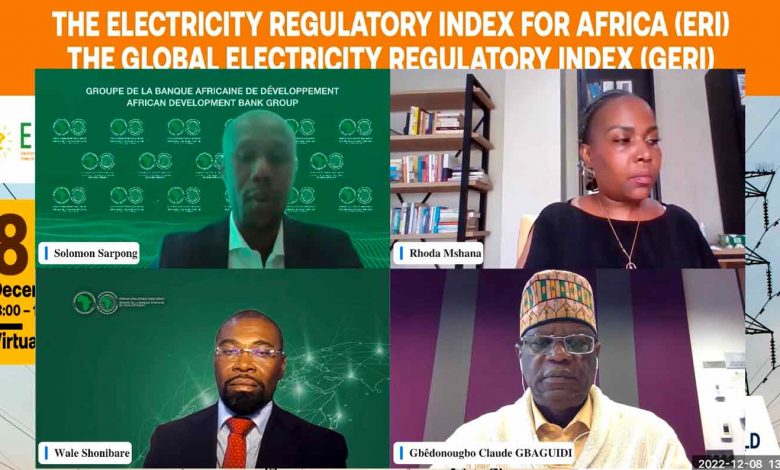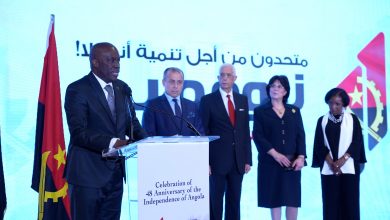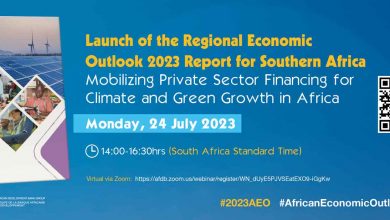African Development Bank and World Bank Launch Electricity Regulatory Index Reports for Africa and the World | African Development Bank

Diplomat.Today
The African Development Bank
2022-12-09 00:00:00
——————————————-
The African Development Bank and the World Bank have issued reports documenting the state of regulation of the energy sector in Africa and in developing countries.
The institutions held a virtual launch event on Thursday, December 8, attended by 240 government officials, regulators, development finance institutions and stakeholders from the African and international private sector.
Published since 2018, the African Development Bank’s Electricity Regulation Index (ERI) is widely adopted by regulators and other stakeholders across the African continent to benchmark electricity regulation and guide reforms in the sector. This new fifth edition covers 43 of the 45 African countries that host independent regulatory bodies.
This year also sees the first edition of the Global Electricity Regulatory Index (GERI) 2022, sponsored by the World Bank’s Energy Sector Management Assistance Program (ESMAP) and conducted in partnership with the African Development Bank. GERI surveys 82 non-OECD countries from around the world – about half in Sub-Saharan Africa and the rest in Asia, Europe, the Middle East and Latin America – and is part of the World Bank’s global effort to promote a robust electricity regulatory environment.
Wale Shonibare, Director for Energy Financial Solutions, Policy and Regulation at the African Development Bank noted that since 2018, the Bank has been pioneering efforts to mainstream regulation of the electricity sector in Africa. investment industry.
“This year marks a crucial new phase for our research thanks to our collaboration with the World Bank. This allows us to compare African regulations with those of other developing regions and shows that the ERI has been influential not only in Africa, but also around the world. world,” said Shonibare.
“While much progress has been made in establishing regulatory frameworks, the Global Electricity Regulatory Index (GERI) report points to some systemic gaps, particularly with regard to regulatory independence and the practice of tariff regulation,” said Vivien Foster , World Bank Chief Economist for Infrastructure.
Key highlights of the ERI:
- Although still at a low level of development, the average score for the ERI 2022 has slightly improved to 0.495 compared to 0.456 in 2021.
- This year’s ERI shows that most countries have continued to strengthen their regulatory governance structures and have noted improvements in technical regulation to increase regulatory capacity.
- Among other findings, the ERI highlights that thirty of the forty-three African countries surveyed have either changed their regulatory laws and tools or introduced new ones, addressing the weaknesses identified by the ERI.
- Countries have made progress in implementing the recommendations, and many have introduced various reforms and developed codes and regulatory tools to strengthen the level of regulation in their countries.
Key Highlights of GERI:
- The average GERI score was 59 percent in 2021, representing an intermediate stage of regulatory development for the energy sector in developing countries, with significant room for improvement and the need for further action to strengthen regulatory frameworks.
- The average score for GERI’s two pillars was 65 percent for the Regulatory Governance Index (RGI) and 54 percent for the Regulatory Substance Index (RSI).
- When it comes to regulatory governance, the most common shortcomings relate to regulatory autonomy, with a global average score of 29 percent for regulatory independence from stakeholders. In terms of regulatory content, the lower score reflects the weak performance of countries worldwide in economic regulation of tariffs with a global average score of 37 percent. This does not indicate the lack of tariff methodologies, but rather the fact that tariff methodologies are often poorly specified.
Click here for more information on the 2022 ERI report
Click here to download the 2022 GERI report
——————————————-



